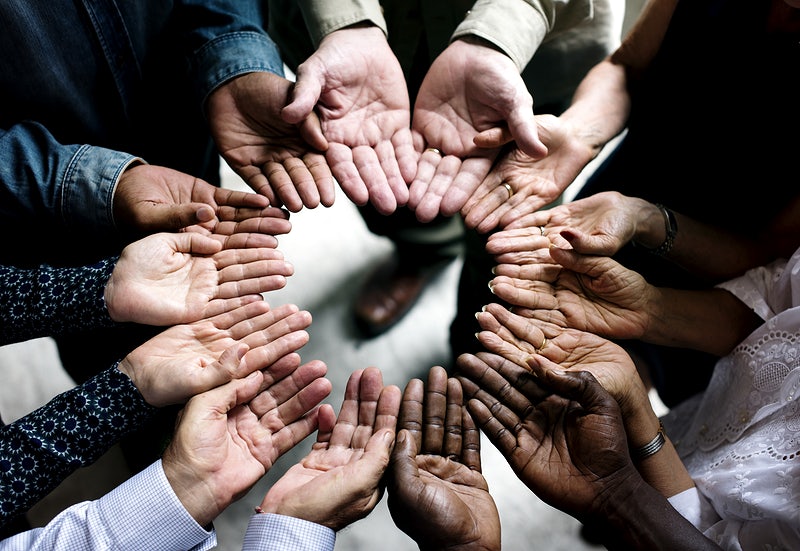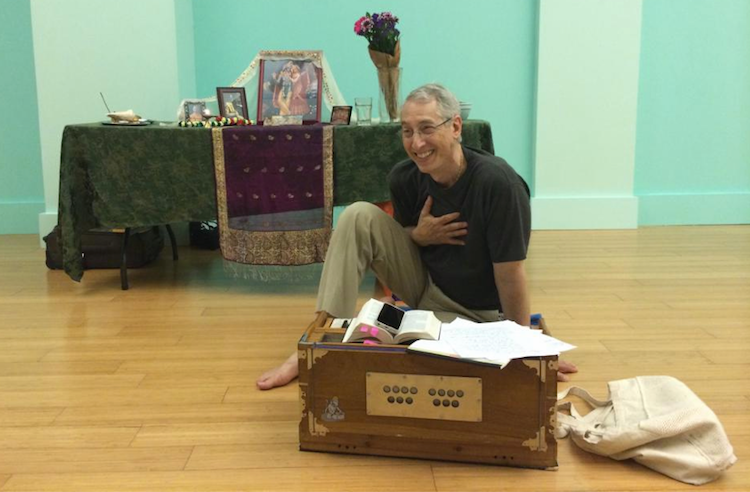Setting a Standard for Ethical Behavior in ISKCON
By Kamala Radha Devi Dasi, ISKCON News Staff | Oct 09, 2021

A new code defines expectations for all devotees.
After two years of research, writing, and debate, the GBC recently ratified and voted into ISKCON law a Code of Ethical Behavior. We spoke with the Code’s author, Yogesvara dasa, about the background to the Code and what changes he hopes to see in Srila Prabhupada’s movement thanks to its passage. The full official Code can be found through the GBC website here: https://gbc.iskcon.org/wp-content/uploads/2021/10/CODE_8-21-21_FINAL_COPY.pdf
ISKCON News: What is the purpose of the ISKCON Code of Ethical Behavior?
YD: We are the inheritors of a grand tradition that exalts and nurtures the highest standard of human character. Sometimes we call it brahminical or Vaishnava standards, but essentially it is behavior outlined in the Bhagavad Gita and other bhakti texts. The purpose of the Code was to translate those standards into specifics for all members of ISKCON. It took two years to draft and vote into law, as some of the points are complex, but on August 21 of this year, the GBC did that. We now have a document that defines what can be reasonably expected from devotees in terms of their ethical conduct. After the GBC ratified the Code, it was then vetted and approved by SABHA, a collective of 32 ISKCON elected and appointed devotees who review GBC legislation. The Code received their blessings as well. Given the challenges we as a society have faced in the past, I think this is a cause for celebration.
ISKCON News: How did the Code come about?
YD: For a long time, ISKCON administrators had wanted such a Code. In years gone by, violations of ethical behavior had led to court cases, schisms within the movement, defections, and the time had come to change that with something formal. We needed a document to point to and say, “Here are our standards.” Over the years, many devotees distanced themselves from ISKCON due to the lack of such a document. Now that has been corrected.
ISKCON News: Is it reasonable to expect that everyone will adhere to the same standards of ethical behavior?
YD: Like any large organization, ISKCON has its share of people who either haven’t understood or are unwilling to follow acceptable standards of behavior. At least now with the Code in place, we have guidelines that give ISKCON devotees a clearer picture of what Srila Prabhupada meant when he said his followers should be perfect ladies and gentlemen—and the Code clearly spells out processes for rectifications as well as consequences for violators. Those consequences include probation and, in more egregious cases, removal from a particular service.
ISKCON News: How far into a person’s life can the Code be applied?
YD: In the privacy of our own homes, each of us confronts our strengths and weaknesses, and that exercise is between individuals, their gurus, Krishna, and their own hearts. But those holding office in ISKCON will be held to a higher standard since their actions have an impact on other devotees as well as the public’s perception of Srila Prabhupada’s institution. Someone who violates basic ethical behavior shouldn’t be allowed to continue holding office in the movement if they cannot rectify themselves appropriately.

HG Yogesvara dasa- Joshua M. Greene
ISKCON News: How did you go about writing the Code? Ethics is a huge issue. How did you decide what to include?
YD: We were a small group at first, so we started by soliciting suggestions from a wider range of devotees. The best advice came from a senior devotee who suggested we read every GBC resolution going back to the first year, 1975 and use existing GBC laws as the starting point—in essence telling the GBC “Look, these are your own words regarding ethics. Here they are in a single document.” Most of what is in the Code was already in place but in need of centralizing. We also analyzed similar codes from a dozen or so religious, business, and government organizations and consulted with a few university professors who teach ethics.
ISKCON News: What was the biggest hurdle to getting the Code approved by the GBC?
YD: The biggest hurdle was writing the Code in such a way that it would not be rejected as overly demanding. That was tricky. On one hand, we didn’t want to compromise a standard of ethical behavior. On the other hand, we knew there might be cultural or political hurdles that would impede implementation. Some trust and confidence had to be extended, meaning a good faith acceptance that local leadership will do their best, given local conditions.
ISKCON News: Are there examples you can offer of those variations?
YD: Yes. What if local laws forbid sankirtan? Should the temple there break the law and perform sankirtan? The Code takes a neutral position by recommending that the local temple consults with ISKCON officials before taking such action since the results could lead to arrests and even affect the movement elsewhere in the world. There are as well varying interpretations of Prabhupada’s instructions. He could be quite adamant at times, and some people choose to focus on those particular statements, while others see the importance of considering everything he said about a particular topic. We can argue forever about what is the better understanding, but now with a Code voted into ISKCON law there are basics we can refer to.
ISKCON News: What are your expectations? What will the Code change?
YD: That depends on how well we establish the Code and impress upon the worldwide ISKCON community that it exists. There are many civil laws on the books that no one knows about until a lawyer cites them in court. We’re hoping to do better than that. We’re planning to offer tutorials to all temples and ISKCON communities, distribute the Code in print and online, and actively promote ethical behavior as a requirement for all devotees. If that happens, we might see other organizations—religious, governmental, civic, and so on—call upon ISKCON to help them implement their own programs. In theory, at least, the Code could be a huge impetus to establishing Srila Prabhupada’s movement as having practical value for the larger society
ISKCON’s Code of Ethical Behavior
ISKCON’s official Code of Ethical Behavior can be viewed in its entirety here.















